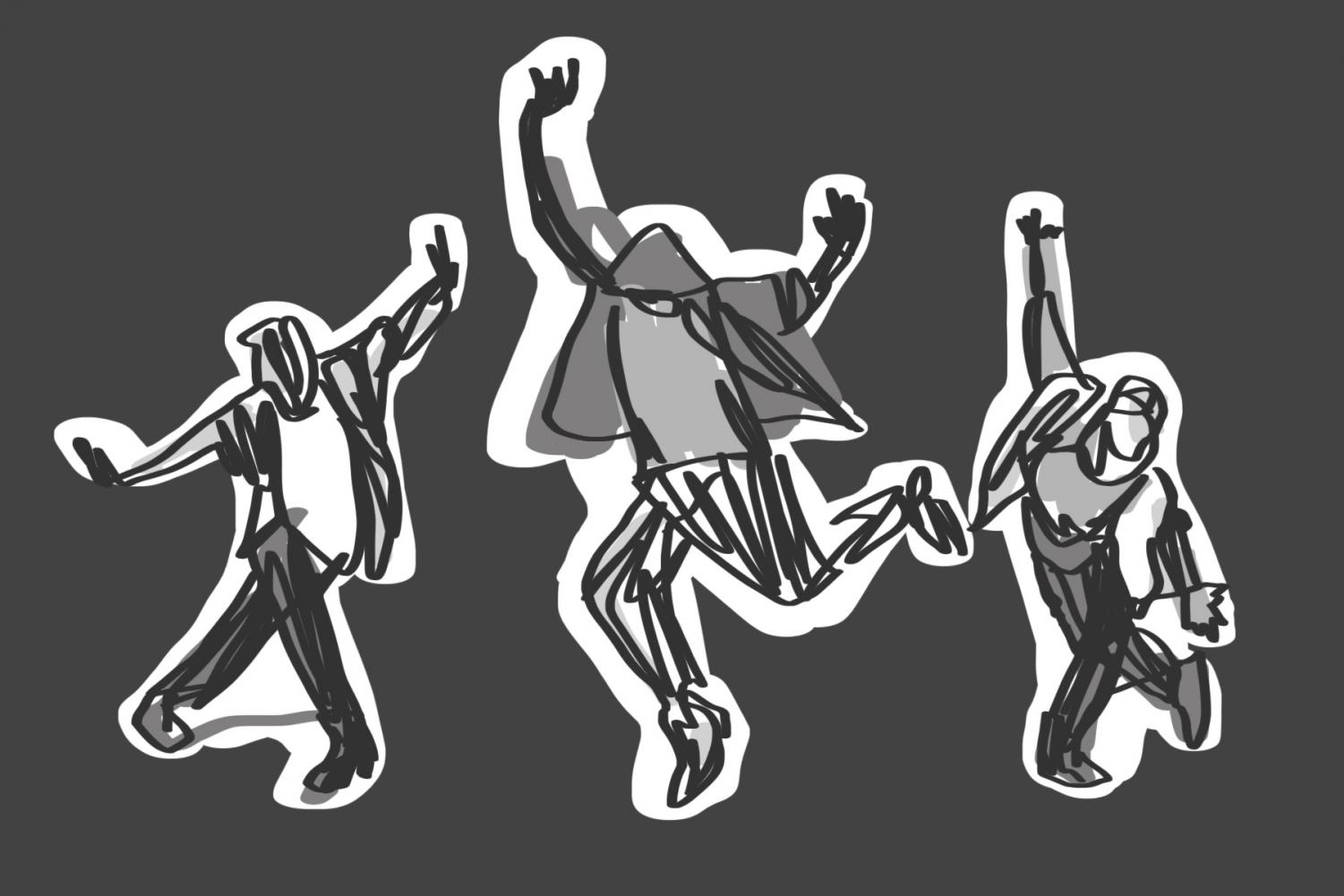Whitman’s wide world of dance
October 19, 2019
“Active” is a word often tossed around to describe Whitman students.
However, when people think of “active” Whitties, the first thoughts that often come to mind are varsity athletics, the multitude of club and intramural sports on campus, rock climbing or any one of the array of activities in the outdoorsy category.
Dance is seldom mentioned.
Despite its more humble presence on campus, a diverse set of dance classes and clubs exist at Whitman, all showcasing countless forms of dance.
On Sept. 21 and 22, jess pretty — who stylistically spells her name using lowercase letters — taught a hip hop dance class and a contemporary TRAP dance class as a part of the Department of Theatre and Dance’s Guest Artist Program, a program that brings working professionals to campus to share their talent with students.
“What my classes seek to do is build an experience of world building, pleasure seeking and feelings of euphoria via the music and the energy in the room from those present,” pretty said. “The movement is highly sensational and to some point exhausting.”

“I ultimately want my class to be fun, to be educational and to teach the students as much about the African American diaspora as possible,” she added.
pretty’s work aims to exemplify how dance can be used as a vehicle for expression, particularly for resistance.
“I talk a lot in my classes about the birth of House dance and how the necessity of music and dance from the black queer communities in Chicago birthed the underground House movement,” pretty said. “A large act of oppression (Disco Demolition at Chicago’s Comiskey Park, home of the White Sox) led to a huge act of resistance that built an entire dance form.”
“Artistic expression is a form of resistance,” she added. “To dare to create art and share it with others is a radical act, especially as a marginalized body.”
pretty hopes that students leave her classes having put thought into what it means to use their bodies.
“I want people to realize they already hold a lot of tools in their bodies,” she said. “You have the exact tools you need to make it. I want to help highlight those tools and put them to use in life moving forward.”
Dance is not only a means of resistance. Sometimes it just so happens to be the best way of getting some energy out.
Sophomore Bethany Hermann, who participates in the ZFit Zumba club, enjoys the wild yet accepting atmosphere dance provides.
“I’ve definitely enjoyed the atmosphere of going crazy and being accepted for it,” Hermann said. “I feel like there is a lot of stigma about dancing around people but it’s definitely an atmosphere of letting loose.”
“[It’s] a really good way to get in shape without dealing with the intimidation factor of the gym,” she added. “It does make you very sweaty, though.”
For student-athletes, dance can also be an unorthodox method for adding that extra something to their game. Such is the case for sophomore Holly Chan, a midfielder on the soccer team who is taking beginning ballet.
“It’s been fun,” Chan said. “[I’ve] already learned a lot about the dance technique, ballet history and body movement and control in general.”
As a member of the soccer team, Chan is no stranger to strenuous work. She was, however, surprised at the physical demands of ballet.
“I have been surprised at how physically challenging ballet is,” Chan said. “It gives me a lot of respect for dancers.”
The hard work in the studio pays off. Chan says it helps improve her game on the field.
“I definitely think that ballet transfers to the field,” Chan said. “[It] challenges us to learn balance and coordination which helps with athleticism on the field.”
There are a multitude of dance classes at Whitman, each with a different scope and different style. But they all have one thing in common: they give students the tools to actively harness their bodies.
The Fall Dance Concert, MMMM, will have showings from Nov. 14-17 and will feature new dances by a special guest artist as well as dance faculty Renée Archibald and Peter de Grasse. MMMM considers pleasure and sensation in various complexities and constructions.



